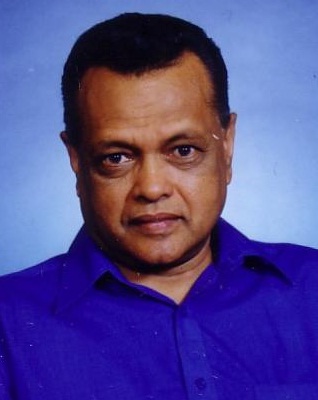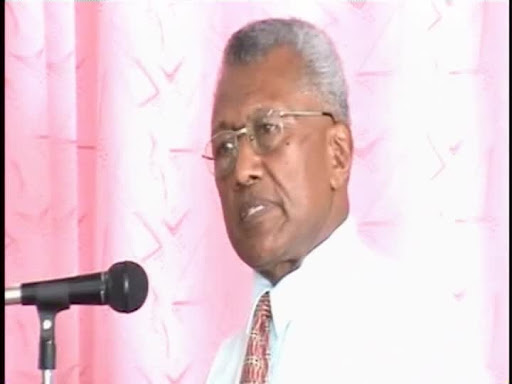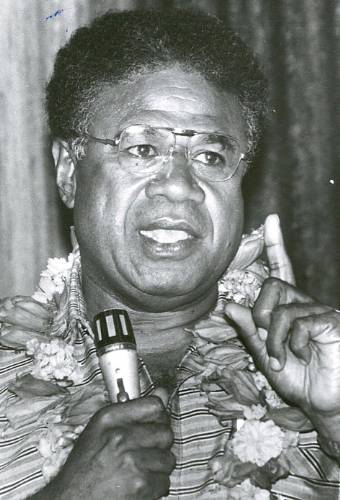 I was shocked when the Fiji Labour Party (FLP) indicated that it would make joint submissions with the SDL Party to the Fiji Constitution Commission (FCC).
I was shocked when the Fiji Labour Party (FLP) indicated that it would make joint submissions with the SDL Party to the Fiji Constitution Commission (FCC).
While it was still considering its intention, the SDL Party unilaterally made its submissions to the FCC, proving that it is racist, with no respect for non-indigenous Fijians.
In its submissions, the Party wanted Fiji to be a Christian State, adopt Fijian as the National language and use the term ‘Fijian’ exclusively for indigenous people.
It also called for a ban on dual citizenship and restoration of the Great Council of Chiefs (GCC) with the power to appoint President and Vice-President.
The FLP has maintained deafening silence.
What is of interest is the naivety of its leadership, unable to distinguish between good and evil. The SDL Party supporters engineered the May 2000 civilian coup against the Mahendra Chaudhary Government.
Ruthless leaders
It is a common knowledge that is the den of racists.
Its discriminatory policies and practices during its term in Government (2000-2006) caused great pain and suffering to Indo-Fijians, thousands of who became destitute after they were evicted from their farms and homes. It contributed to a record number of suicides.
Every family that leased land in the sugar belt of Fiji carries the scars of that dreadful era. Some have left Fiji but many still live on the threshold, as they strive to restore their shattered lives.
As if these were not enough, their own leaders turned out to be as heartless and ruthless as those who persecuted them.
Although they were in a powerful position to resist the persecution of their people, they chose to secure their own political hegemony, as intra-party feuds obscured the fate of their subjects.
The decision of FLP to make a joint submission with its archenemy, the SDL Party, reeks of politics of opportunism with the interests of the leaders taking precedence over the interests of the people and the nation.
 Erosion of rights
Erosion of rights
One of the greatest follies of the Indo-Fijian parties was that they tried to run with the hare and hunt with the hounds. It always dissipated or submerged Indo-Fijian concerns and interests, resulting in gradual erosion of their rights.
They allowed indigenous politicians to infiltrate into their parties. Not even one politician has creditably proved his or her commitment to work sincerely in protecting, promoting or defending the rights of Indo-Fijians.
According to many, former Prime Minister Timoci Uluivuda Bavadra was a true champion of multiracial Fiji but he emerged on the political scene like a flash of lightning and was prematurely removed from office, following the military coup of May 14, 1987.
A delusion
The rut set in when NFP included Apisai Tora, a firebrand politician, mastermind behind the 1987 coups. His anti-Indo-Fijian stance was common knowledge and yet he was not only included but also paraded as a distinguished member of the NFP.
FLP also deluded itself when it allowed some known indigenous nationalists to become its members, who eventually showed their true colours.
For example, Poseci Bune was heading the Public Service Commission, following the first coup and he actively pursued the program of indigenisation of the civil service.
He was a senior member of the FLP. However, the most surprising revelation was that of Dr Tupeni Baba, who aspired to head the FLP and project himself as a great champion of multiracialism and a strong critic of the Fijian Administration.
However, when he could not have his way, he simply slipped into the SDL Party camp.
Lack of Wisdom
With hindsight, it would seem that Indo-Fijian leadership in Fiji lacked wisdom and vision in articulating the interests of the Indo-Fijian community.
It could not distinguish between the sheep and goat, allowing stray and unprincipled indigenous politicians to take them on a ride.
History has proved that oppressed communities should stand on their own feet to assert their rights. Those who lean on others for their freedom and rights usually end up in the ditch, accentuating their pain and suffering.
 Interestingly, Mr Tora joined the NFP not as a friend of Indo-Fijians or an advocate of multiracialism, but as a friend of the late Siddiq Moidin Koya, a senior member of the NFP and later its leader.
Interestingly, Mr Tora joined the NFP not as a friend of Indo-Fijians or an advocate of multiracialism, but as a friend of the late Siddiq Moidin Koya, a senior member of the NFP and later its leader.
Others who joined the FLP had political ambitions but were not selected by indigenous political parties. Therefore, they gravitated towards the FLP, aware that it would give them a seat in the Parliament with accompanying financial rewards.
Selfish Indo-Fijian leaders placed the future of Indo-Fijians in jeopardy.
If they had wisdom, vision, honesty and commitment towards the interests of their community, Fijian democracy would have evolved in the interests of everyone.
Let us hope that the new Constitution would make Fiji a true democracy and not typified as the tyranny of the majority.
Importantly, let us hope that it keeps out politicians of the bygone era, including those with similar traits.
Rajendra Prasad is a thinker, author (‘Tears in Paradise’) and an Indian Newslink columnist. He lives in Auckland. Email: raj.prasad@xtra.co.nz




